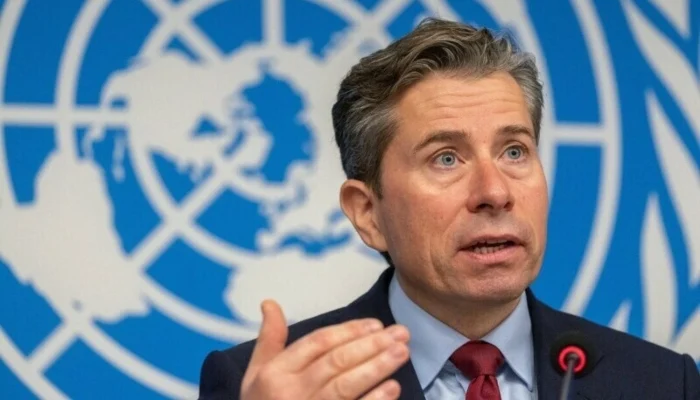
UN OCHA Announces to Big Scale Back Operations 2025 in Pakistan
The United Nations Office for the Coordination of Humanitarian Affairs (UN OCHA) has announced a significant reduction in its operations across Pakistan and other countries due to a substantial funding shortfall. This decision comes as the agency faces a $58 million deficit, primarily attributed to decreased contributions from major donors, notably the United States.
Funding Crisis and Operational Impact
UN OCHA, responsible for coordinating international humanitarian efforts, has been grappling with a severe budgetary shortfall. The United States, historically the largest contributor, pledged $63 million for 2025, accounting for 20% of OCHA’s extrabudgetary resources. However, under the current administration, U.S. foreign assistance has been significantly reduced, leading to a funding gap that has forced OCHA to reevaluate its global operations.
In response to this financial crisis, OCHA has announced plans to cut its workforce by 20%, equating to approximately 500 positions. The agency currently employs around 2,600 staff members across more than 60 countries. The restructuring will focus resources on fewer countries, streamlining operations to align with available funding.
Impact on Pakistan
Pakistan, a country already facing numerous humanitarian challenges, will experience a scaled-back presence of UN OCHA. This reduction may affect ongoing projects related to disaster response, health services, and support for displaced populations. The decision underscores the broader implications of global funding cuts on humanitarian assistance in regions with pressing needs.
Global Humanitarian Landscape
The funding shortfall at UN OCHA is part of a larger trend affecting humanitarian organizations worldwide. The United Nations has appealed for $47 billion in aid for 2025 to assist 190 million people in 32 countries. However, as of the latest reports, the funding stands at only 43%, leaving a significant gap in resources needed to address escalating crises.
The global landscape is witnessing a convergence of factors contributing to this funding crisis. Protracted conflicts, climate-induced disasters, and economic instability are increasing humanitarian needs, while donor countries are reducing aid budgets. This mismatch is placing immense pressure on humanitarian agencies to deliver assistance with limited resources.
Strategic Adjustments and Future Outlook
In light of the funding constraints, UN OCHA is implementing strategic adjustments to enhance efficiency. The agency plans to decentralize decision-making, empowering country leadership to respond more swiftly to local needs. Additionally, efforts will be made to reduce bureaucracy and ensure that a larger portion of the budget is allocated directly to country and regional offices, aiming for a 70/30 ratio between field operations and headquarters.
Despite these measures, the road ahead remains challenging. The humanitarian community is calling for renewed commitment from donor nations to support global aid efforts. Without increased funding, the ability to address the needs of vulnerable populations in countries like Pakistan may be further compromised.
Conclusion
The scaling back of operations by UN OCHA in Pakistan and other countries highlights the critical intersection of funding and humanitarian action. As global crises intensify, the international community must reassess its approach to humanitarian assistance, ensuring that financial support aligns with the growing needs of affected populations. The coming months will be pivotal in determining the future of humanitarian operations and the well-being of millions relying on aid.







